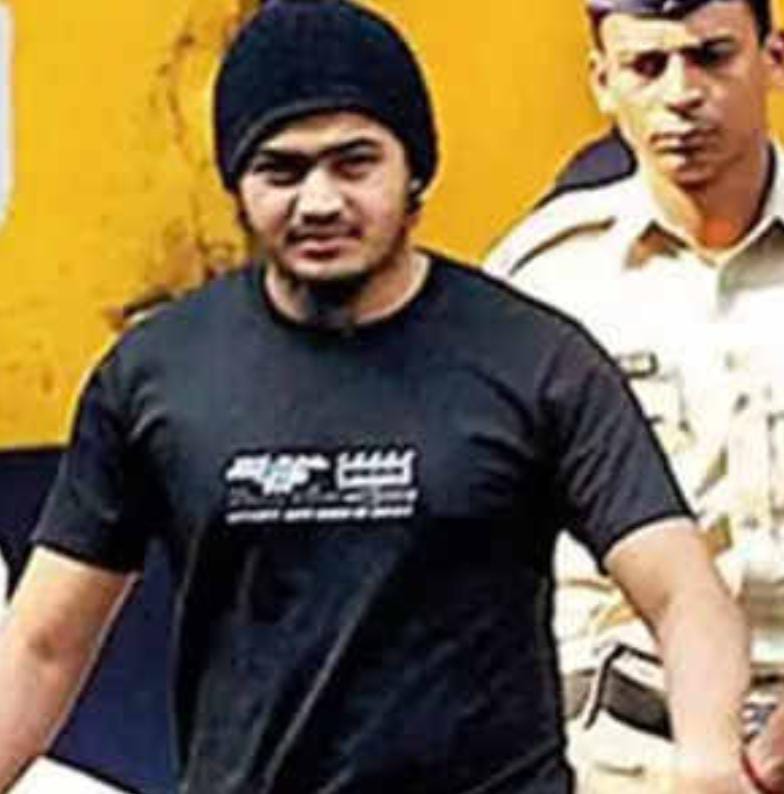Sagarika Mitra, Content Head of JAN KI BAAT, highlights the cases of two ISIS operatives to push for fast tracked trial and stringent punishment.
As news of the arrest of Shafi Uzzama, a suspected ISIS terrorist, reverberates through the nation, it brings to the forefront the parallels with the case of Areeb Majeed, the first ISIS operative to be arrested in India. A striking commonality between them is their educational background – Majeed was an engineering student, while Uzzama is a mining engineer.
In 2021, the bail granted to Majeed by the Bombay High Court in 2021 noted, “Mr Majeed is an educated person, who was completing his graduation in Civil Engineering when he left for Iraq at the age of 21. He categorically stated before us that as a 21-year-old, he was carried away and that he had committed a serious mistake, for which he had already spent over six years behind bars.”
In January 2023, National Investigation Agency (NIA) vehemently opposed Areeb Majeed’s contention in court, marking a critical moment in the case. The heart of the matter was Majeed’s extrajudicial confession, in which he claimed to have received $2,000 and a pair of ankle-length shoes from the leader of the ISIS engineering and research department. This confession, intricately tied to certain incriminating articles, including the money, was crucial evidence against him. However, Majeed’s defense rested on the timing of the seizure of $1,100 and the shoes, arguing that they were confiscated by the police at the time of his arrest and not after the disclosure statement was made. It’s worth noting that a similar objection had been raised by Majeed in 2018, resulting in the deferral of the witness’s deposition. NIA’s opposition underscored the significance of this evidence in the case against Majeed, adding another layer of complexity to the ongoing legal proceedings.
Understanding Areeb Majeed’s case
In May 2014, India was confronted with its first direct brush with the ISIS terror network when four young Muslim men from Maharashtra left the country to join the Islamic State of Syria and Iraq (ISIS).

Areeb Majeed & his return to India:
Six months after departing for Syria, Areeb Majeed, one of the four men, made a decision to come back to India. He had been shot twice and survived an airstrike conducted by the United States-led forces combating ISIS terrorists in Syria. He approached the Indian consulate in Turkey, where he requested an emergency certificate to return to India. However, his return led to his arrest at the Mumbai airport in November 2014.
Areeb Majeed: First ISIS operative to be arrested in India
Majeed’s arrest marked the first instance in which an ISIS operative was apprehended on Indian soil. The National Investigation Agency (NIA), took over the case from the Mumbai police and embarked on a mission to uncover the extent of ISIS’ infiltration within the country. He faced charges of ‘committing acts of terror’ under Section 16 and criminal conspiracy under Section 18 of the Unlawful Activities (Prevention) Act, as well as the grave charge of waging war against nations that have friendly relations with India under Section 125 of the IPC.
Engineers radicalised & recruited by ISIS:
To the astonishment of NIA investigators and intelligence agencies who were tasked with probing Areeb Majeed’s case, many Indian youths, including engineers, had become attracted to ISIS after the group began taking control of territories in Syria and Iraq in 2013. These operatives initially sought out ISIS-related content online, including videos of war, gruesome executions of journalists and foreign nationals, and propaganda materials promoting the destruction of cultural heritage sites.
Pilgrimage used a pretext to join ISIS?
Majeed’s case, as detailed by the NIA, had highlighted how he and three others had left India under the pretext of a pilgrimage to Iraq. However, instead of visiting pilgrimage sites, they had escaped to Syria to join the ranks of the Islamic State and engage in Jihadi activities.
Abdullah Basith & the lessons from his case:
India must not take the ISIS threat lightly – this conviction stems from the unsettling history of individuals returning from Syria and Iraq only to form terror modules on Indian soil. The likes of Abdullah Basith and his associates from Hyderabad attempted to reach Syria via Bangladesh but were arrested in Kolkata in 2014. Despite police warnings and counselling, they persisted. Later, Basith was arrested in 2018 in connection with the Abu Dhabi module and was involved in various IS-related cases.
In 2020, it was discovered that Ab dullah Basith, lodged in Tihar jail as an undertrial, was using his cell as a broadcasting center to prepare extremist messages.
dullah Basith, lodged in Tihar jail as an undertrial, was using his cell as a broadcasting center to prepare extremist messages.
These cases of ISIS terror suspects in India underscore the need for fast-tracked trials and a stern stance on bail for radicalised ISIS individuals – because ISIS threat is real and it can’t be dealt with a soft approach.

